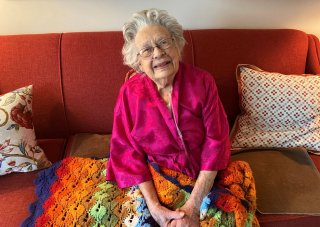The CDC Still Needs to Explain How to Protect the Elderly Once Stay-At-Home Orders End
American needs answers.
The Centers for Disease Control and Prevention has yet to issue guidance on how to protect the elderly after social distancing ends in the United States, despite multiple requests for comment from the Daily Caller News Foundation.
Older adults are at much higher risk of developing serious complications from the novel coronavirus, the CDC has warned — eight out of 10 those who have died in the United States have been adults 65 years old and older. The CDC’s website encourages the elderly to stay home if possible, to wash their hands often, and to take “everyday precautions to keep space between yourself and others.”
The CDC’s website also includes an extensive checklist of steps for the elderly to take to stay healthy.
But the CDC has not issued further guidance on how the elderly are to protect themselves from coronavirus once social distancing requirements across the nation end and Americans who might have had the coronavirus or might have been exposed to the virus go about their business as usual.
The CDC did not respond to multiple requests for comment from the DCNF throughout the past week on the matter.
General guidance for older adults on the CDC’s website encourages older adults to “develop a care plan” that will help reduce emergency hospital visits and hospitalizations and result in overall better quality of life.
“A care plan summarizes your health conditions, medications, healthcare providers, emergency contacts, and end-of-life care options (for example, advance directives),” the CDC’s website stated. “Complete your care plan in consultation with your doctor, and if needed, with help from a family member or home nurse aide.”
President Donald Trump announced “30 Days to Slow the Spread” at the beginning of April, and the president has said that his administration will reevaluate whether social distancing guidelines are still necessary for the whole country when the period ends April 30. The president has repeatedly emphasized his desire to reopen the economy as soon as possible.
As social distancing continues, a jobs report released Thursday showed that an additional 6.6 million Americans lost their jobs. Job losses amount to the second-biggest number of initial unemployment claims in history since the Department of Labor began tracking such data in 1967, CNN Business reported. Lawmakers such as Attorney General Bill Barr have called for social distancing requirements to end sooner or later, warning that alternative ways of protecting people must be examined.
White House Coronavirus Task Force member Dr. Anthony Fauci said Thursday that the United States could see as few as 60,000 deaths from the virus if we maintain current levels of social distancing.
“The real data are telling us that it is highly likely that we’re having a definite positive effect by this mitigation things that we’re doing — this physical separation — so I believe we are gonna see a downturn in that. And it looks more like the 60,000 than the 100,000 to 200,000,” Fauci said.
“But having said that, we better be careful that we don’t say, ‘OK, we’re doing so well we can pull back.’ We still have to put our foot on the accelerator when it comes to the mitigation and the physical separation,” he added.
Health officials warn that the elderly suffer from acute loneliness during this extended period of isolation.
“Loneliness in the era of social distancing has become a public health crisis in its own right,” wrote Dr. William Kasler in a Wednesday Forbes piece. “Ironically, the elderly, who stand to gain the most from social distancing, are also among the communities most impacted by the isolation. We need real solutions that can address this issue, and there is a tremendous opportunity for technology to play a part.”
Geriatrician and associate professor at University of California-San Fransisco School of Medicine Carla Perissinotto, who has studied health effects of loneliness in older adults, has found links between loneliness and dementia, loss of mobility, cardiovascular decline, and death in the elderly.
“The risks of loneliness and isolation are so great that we don’t know if we’re causing a lot of harm by totally socially isolating people,” Perissinotto told the Philadelphia Inquirer.
“The hard thing is, we don’t have any idea as to when these health risks take effect. Is it after a week? A month?” she said. “We need to proactively think about how we are supporting people, or we’re going to see a lot of complications.”
Content created by The Daily Caller News Foundation is available without charge to any eligible news publisher that can provide a large audience. For licensing opportunities of our original content, please contact [email protected].
Image: Reuters

